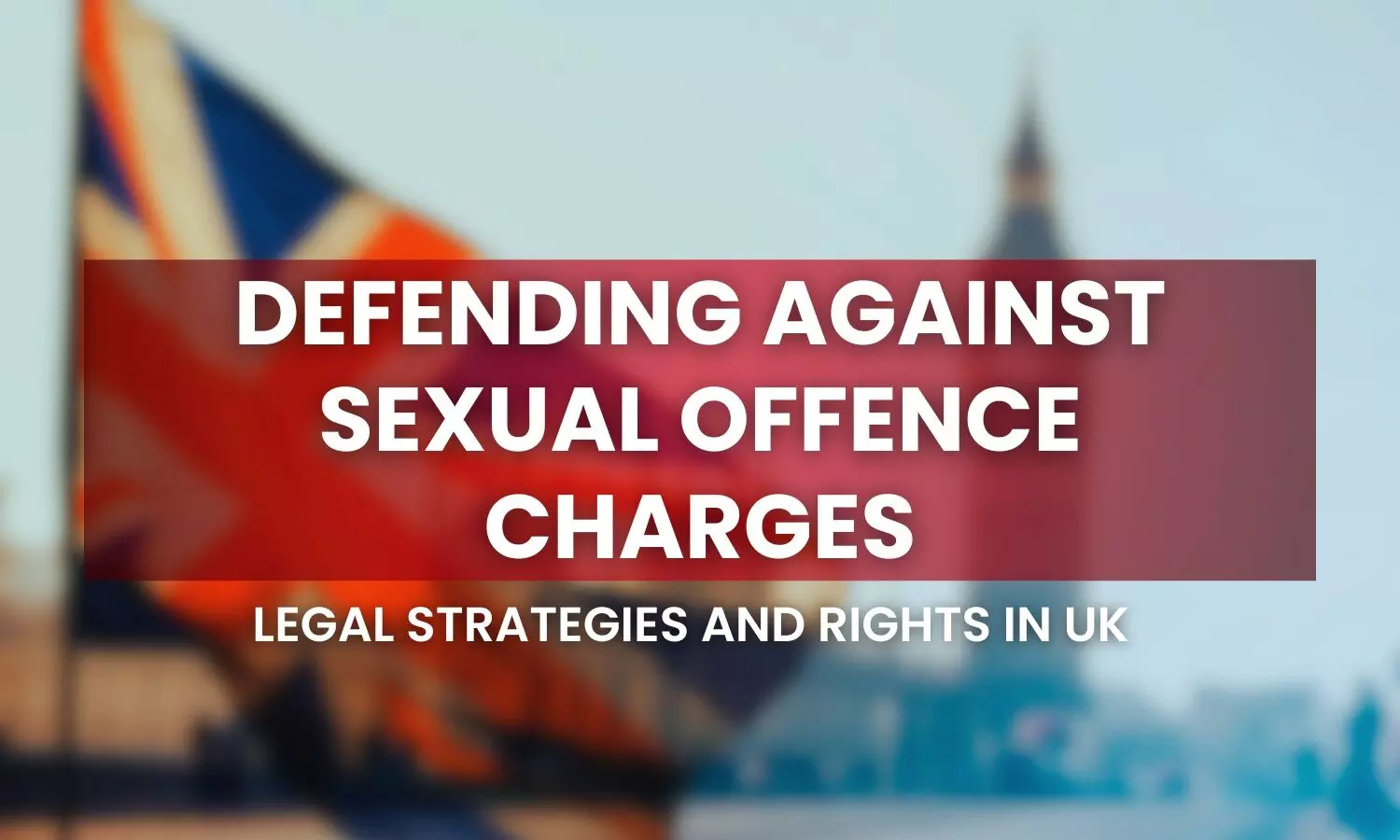Defending against Sexual Offence Charges: Legal Strategies and Rights in the UK
This article explores the complexities of defence against sexual offence charges in the UK, emphasizing the importance of understanding one's rights, legal framework. Scroll down to read more!

Facing sexual offence charges in the UK can be an overwhelming and daunting experience. The implications of such charges can be far-reaching, affecting both your personal and professional life.
It is crucial to understand your rights and the available legal strategies to effectively defend yourself. Consulting with experienced sexual offence solicitors can provide invaluable guidance during this challenging time.
But what strategies might your lawyer use, and what rights do you have as the accused? We'll explore this question in this article...
Legal Framework and Rights
The Sexual Offences Act 2003 is the primary legislation governing sexual offences in the UK. This act outlines various crimes, including rape, sexual assault, and offences involving minors.
Understanding the provisions of this act is essential for anyone facing such charges. For more detailed information on the legislation, you can refer to the official Sexual Offences Act 2003 document.
Rights of the Accused
As someone accused of a sexual offence, you have specific rights under UK law. These include:
- The right to remain silent.
- The right to legal representation.
- The right to be treated as innocent until proven guilty.
- The right to a fair trial.
It is vital to exercise these rights effectively to ensure that your defence is strong and your position is well-represented.
Strategies for Defence of Sexual Offences
Developing a robust defence strategy is paramount when facing sexual offence charges. The following strategies are commonly employed by legal professionals:
- Gathering Evidence
Collecting and presenting evidence is a cornerstone of any defence strategy. This includes:
- Witness testimony.
- Physical evidence.
- Electronic communications and records.
Your solicitor will work diligently to gather all relevant evidence that can support your case, ensuring that every detail is meticulously examined.
- Challenging Prosecution's Evidence
Another critical aspect of defence is to challenge the prosecution's evidence. This can involve questioning the credibility of witnesses, highlighting inconsistencies in their testimonies, and disputing the validity of physical evidence.
Reviewing the guidelines provided by the Crown Prosecution Service on sexual offences can offer insight into how the prosecution may approach the case.
- Expert Testimony
Utilising expert testimony can also play a crucial role in your defence. Experts in fields such as forensic science, psychology, and digital communications can provide insights that may counter the arguments presented by the prosecution. These experts can offer professional opinions that may cast doubt on the evidence put forth against you.
- Character References
Character references can be instrumental in shaping the perception of the accused. These references often come from colleagues, friends, or community members who can attest to your character and integrity. While character references alone may not absolve charges, they can provide context and support your defence.
The Role of Legal Representation with Sexual Offence Charges
The importance of having competent and experienced legal representation cannot be overstated. Your solicitor will guide you through the complexities of the legal system, ensuring that every aspect of your case is meticulously handled. They will assist in gathering evidence, preparing witnesses, and formulating a defence strategy tailored to your specific situation.
Moreover, a knowledgeable solicitor can offer reassurance and clarity during a time that is often fraught with uncertainty and stress. They will explain the legal processes, possible outcomes, and your rights, helping to demystify the procedures involved in defending against sexual offence charges.
Understanding the Trial Process
If your case goes to trial, understanding the trial process is crucial for anyone facing sexual offence charges. Here is an overview of what you might expect:
- Pleas and Pre-Trial Hearings
Initially, you will be required to enter a plea of guilty or not guilty. Should you plead not guilty, the case will proceed to pre-trial hearings where various legal arguments and motions will be addressed. These hearings are critical for setting the stage of the trial, including what evidence will be admissible.
- The Trial
During the trial, both the prosecution and defence will present their cases. This involves presenting evidence, cross-examining witnesses, and making arguments. It is essential to remain composed and cooperative throughout the trial, as your demeanour can impact the jury's perception.
- Verdict and Sentencing
Following the trial, the jury will deliberate and return with a verdict of guilty or not guilty. If found guilty, sentencing will be determined based on the severity of the offence and other mitigating factors. Understanding the guidelines on evidence in sexual offence prosecutions can provide insight into how your case may be evaluated.
For further information on the trial process and evidence guidelines, you can review the Law Commission's project on evidence in sexual offence prosecutions.
Defending Sexual Offence Charges is Complex
Defending against sexual offence charges in the UK involves navigating a complex legal landscape. It is imperative to understand your rights, the legal framework, and the strategies available for your defence.
Engaging with experienced sexual offence solicitors can provide the expertise and support needed to mount a robust defence. By taking these steps, you can work towards securing the best possible outcome for your case.
**Please be advised this article is for informational purposes only and should not be used as a substitute for advice from a trained legal professional. Please seek the advice of a legal professional if you’re facing sexual offence charges.
Important Links
Law Library: Notes and Study Material for LLB, LLM, Judiciary, and Entrance Exams

